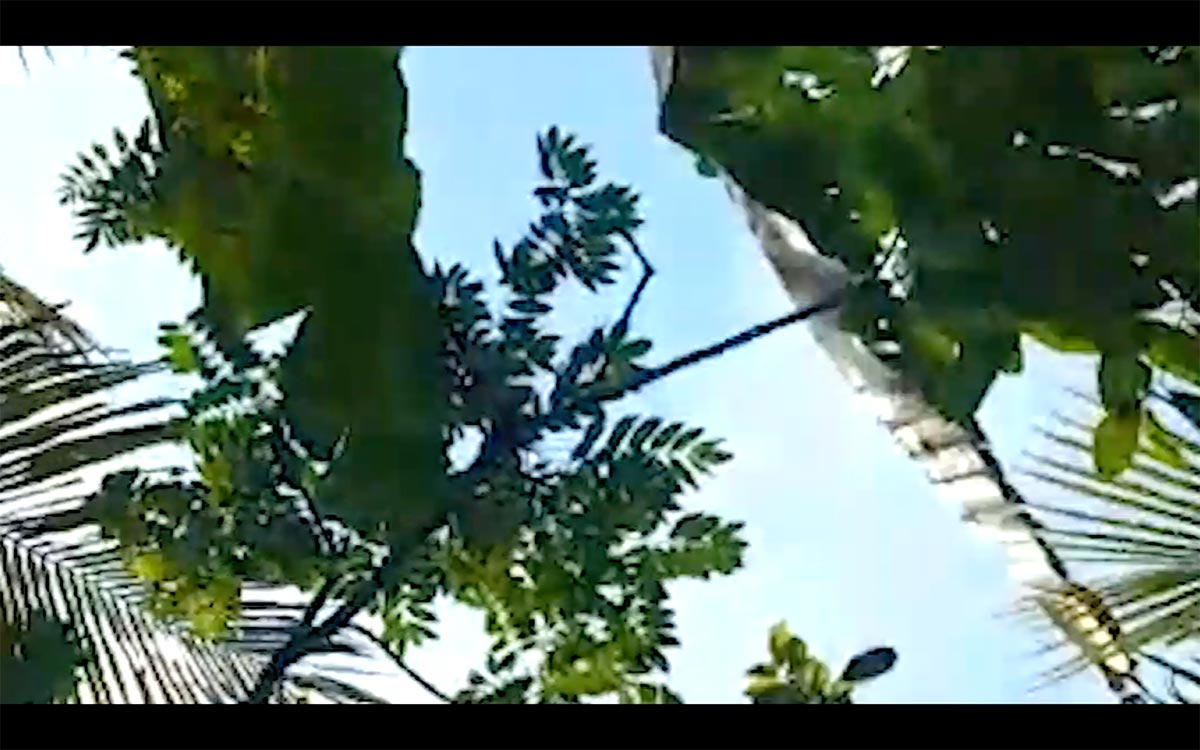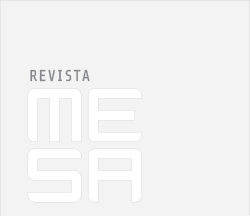
One Text, Three Temporalities
Madalena Vaz Pinto
I think that what the teacher conveys, then, is not a knowing, but [rather] a learning, a creating. It is as an apprentice, that is, as a creator (and not as a sage or master), that the teacher comes across as a thinker.
Suely Rolnik1
as an experience, which has nothing personal or impersonal, literature ignores the strict limits of the subject’s uniqueness and gives experience the nature of an inescapable multiplicity in becoming.
Silvina Rodrigues Lopes2
(Un) Likely Scene 1
seated, very circumspect, looking at the map of difficulties. data, indices, statistics, forecasts. analyze, scrutinize, compare, and then end up siding with the deficit: it won’t work, not even a chance, no way and go home. and repeat this same course of action over and over. analyze, look over, compare: it won’t work, not even a chance, no way. and an inner mill, a restlessness, uneasiness. because there is life out there. this cant be denied. there is life in those beings that inhabit the classroom, who speak to you, survey you with their eyes. So? what are we to do? it’s very complicated. There’s the methods, the rules, the step-by-step of what must be done, the results. but it does not work. it just doesn’t work. they don’t like it, they don’t want it, they don’t feel affected. the same route several times. and a mill, a restlessness, uneasiness. what if? because there is life out there. this cant be denied. like a beginning, a light, an air that passes through the gap. what if? what if? lacking direction, peers, where to go? where to seek inspiration, a supportive word. yes. there must be a change. a change from what? but how? It’s not just me who’s saying it, it’s the numbers. it’s the statistics, it’s not me. it’s not me, this is very clear, and look at the map, and see the graphics, everything is stuck, nothing moves. and read the news. public education in Brazil, tragedy announced and repeated. and the mill begins, the uneasiness. what if? today I’ll do it differently. what do you mean? stop being crazy, you’re out of sorts. I’m going to. today I’m going to do it, today I’m going to invent, I’m going to start in the middle.
A Mark Remembered
In so far as it makes sense to recall a personal memory, I carry a mark on my body and in my mind, the memory of a feeling of impediment, a long and strong no. I was born in Lisbon and lived under the dictatorship overthrown in April 1974 when I was 14. in the case of my family, friends and acquaintances, the dictatorship did not manifest itself through political repression and confinement, but through a deep and insidious silence that was manifested in the feeling of impossibility and absence of horizon. destinations were marked from an early age, there was no right to choose, to change, to want. the memory of a dialogue repeatedly heard when we were children is vivid: I want…! you want…? but you cannot want! in addition to families, the church and the school were the other essential pillars maintaining control and propagating a closed and guilty mentality. the religious school, don’t even mention it. anyone who dared to be different paid a high price in guilt and loneliness. this state of affairs killed, sickened, and depressed people close to me, irrevocably.
Readings, reverberations
being a teacher is inseparable from that memory. I know how the classroom can be a closed and repressive space. and I also know how it can be the opposite of that, a space for listening and openness that can generate trust and change lives. from my first classes as a university undergraduate teacher, until the moment I began to teach masters students, I have pursued this possibility in my practice. the professional masters program I teach has an important feature: male and female students are already teachers. public school teachers. this means that they bring with them the living experience of a reality to be recognized and activated during the course. the master thesis proposal encourages this: teachers simultaneously research a problem that they identify and an intervention via a set of activities in the classroom in an attempt to transform it. in the discipline “readings of the literary text”, which I teach, the first encounters begin by confronting the instability of the term ‘’literature’ itself. they begin by dealing with the question “what is literature?”, without pretending to answer it conceptually, but rather by making it a practice of reading texts that show, in their creative power, the unimportance of defining the nature of the literary. teaching literature, or rather, practicing literary reading, to adopt a less eloquent and more appropriate expression, is not to apply norms and rules to a text, nor to determine the ways in which it should be dealt with. it is rather to ensure reading protocols, to defend ways of reading that, are neither pragmatic or referential but reverberate in the real through the affects that they produce, by deactivating perceptions and opening up to the possibility of other forms of life. the recurring observation brought by teachers that, the students do not like to read, changes as they notice that the students do not like it because in fact the students do not read. little by little, this perception is modified and transformed by listening to and reading texts. this is not something that can be taught, it has to be lived as an experience, an experience that many teachers have not experienced, as for the vast majority of them the teaching of literature was a pretext for learning the biography of the authors, memorizing characteristics, dates, and literary periods. as if the students had no voice, they were not allowed to speak, to make manifest their ideas and perplexities, affections. what they liked or disliked and why. therefore, it is always necessary to start there. construct “reading scenes”, listen to their effects and reverberations. to be open to listening to students, not to fear the potential for dissent that literary reading can and often does incur. perceive the openness there to respect difference. because reading can start as a solitary act, but it only makes sense if shared.
(Un) Likely Scene 2
hey, girls, boys, all sitting in a circle. in a circle Miss? (I knew it wasn’t going to work. Stop being crazy.) Yes, in a circle. eye to eye. here. sit down. let’s read a text. ah, Miss, isn’t there anything better? I hate to read. read for what? today we are going to read a text. I read, you read. we will talk about it. talk, Miss? or answer questions? talk. discomfort, almost silence. (stop being crazy, don’t come with wanting to change things, change what?) and it started. the text read. then reread by everyone. now i want to know what you guys think. what you felt. silence. can I speak Miss? yes you can talk. I say. and it began. a few words here, an answer there, and another one, and more. and different opinions. that don’t match. do not agree. don’t concur. and voices, and screams, and laughter, but sitting in the circle, nobody got up. there was no need to ban anything. different class. neither organize nor follow the rules. maintain order, organize, prepare. first this, then this here. remember how it was? all shut up. but sad. nobody spoke. no one talked about the text. they didn’t want to know what you thought. the memories of what it was like for you. the marks. what to do with them? So? what if? because there is life out there. this cannot be denied. laughter, chatting, expectant looks. I am here. we are here. what if? there is life out there.
***
Madalena Vaz Pinto
Is Portuguese and lives in Brazil. She studied literature at PUC-Rio where she received her doctorate with a dissertation on Portuguese and Brazilian modernisms. She is an adjunct professor at UERJ at the FFP-Faculty of Teacher Training of São Gonçalo and the Academic and Professional Masters in Literature of the same faculty. Her research focuses on modern and contemporary literature and on the training of teacher-readers based on a joint work of building reading scenes and inventing other ways of reading. She is the author of texts published in various periodicals and magazines in the field. She recently edited the book Gonçalo M. Tavares: ensaios, aproximações, entrevista published by Oficina Raquel.
1 Suely Rolnik. Pensamento, corpo e devir. Uma perspectiva ético/estético/política no trabalho acadêmico. Available online: https://www.pucsp.br/nucleodesubjetividade/Textos/SUELY/pensamentocorpodevir.pdf [Acesso 19.10.2015]
2 Silvina Rodrigues Lopes. A literatura como experiência. In: Literatura, defesa do atrito. Lisboa: Edições Vendaval, 2003, p. 31.


